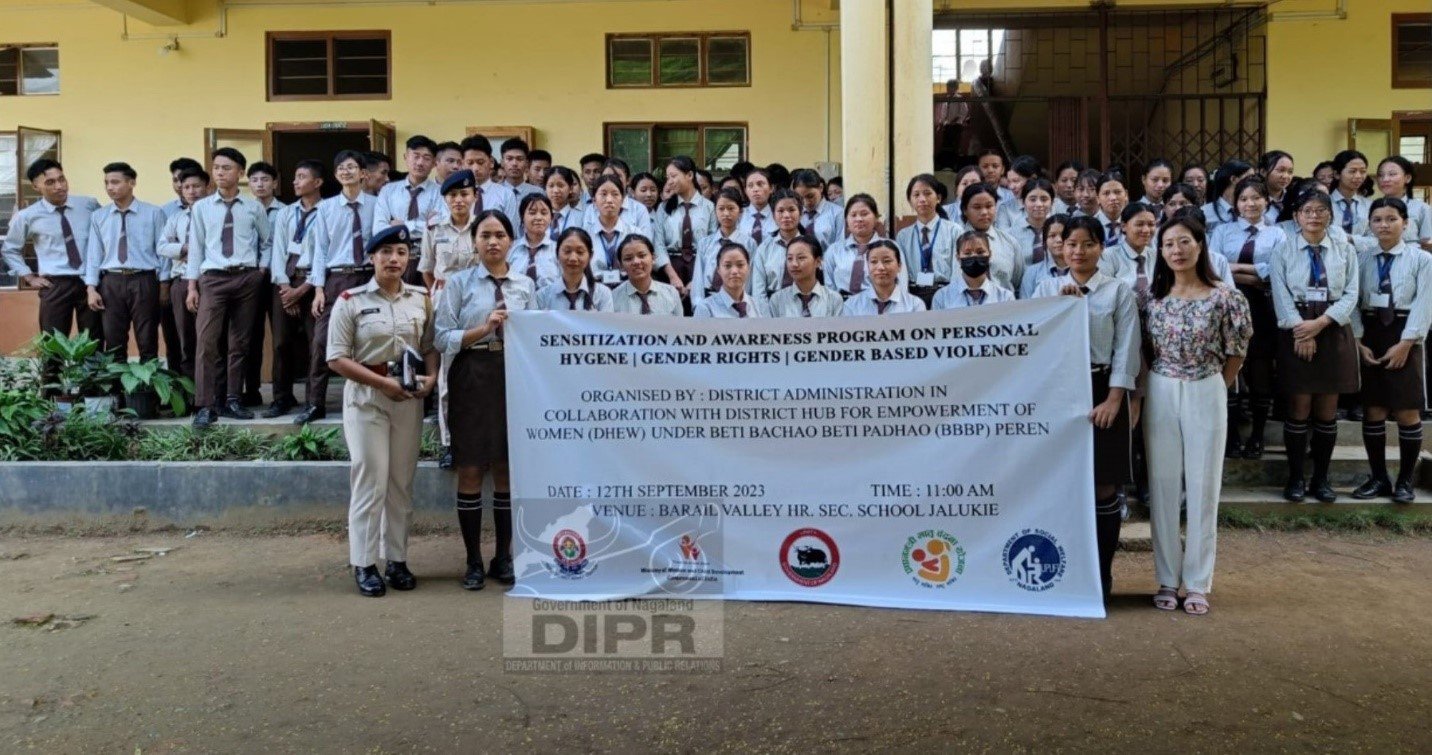A comprehensive sensitization and awareness program addressing personal hygiene, gender rights, and gender-based violence was conducted at Barail Valley Higher Secondary School in Jalukie on Tuesday, DIPR said. This program was organized by the District Administration in collaboration with the District Hub for Empowerment of Women (DHEW) Peren, as part of the Beti Bachao Beti Padhao (BBBP) initiative in Peren.
In the first session, Lungngaulie, a Gender Specialist from the District Hub for Empowerment of Women (DHEW) Peren, addressed the topic of “Personal Hygiene” with the girls in attendance. She emphasized that menstruation is a natural and healthy aspect of life but is often stigmatized in many societies. Menstruating girls and women frequently encounter discrimination, social exclusion, and shame. Lungngaulie also highlighted the importance of practicing healthy menstrual hygiene habits and the potential risks associated with poor menstrual hygiene, which can lead to reproductive and urinary tract infections (UTIs), ultimately affecting future fertility and childbirth.
The second session featured Shezholü Vero from Women Police Jalukie, who spoke about “Gender Rights, Issues, and Gender-Based Violence” with both boys and girls. She underscored that gender rights are not exclusive to women but encompass the rights of all individuals, emphasizing equality in rights, responsibilities, and opportunities for people of all genders. Vero also provided insights into constitutional rights available to women in India.
The session delved into the critical issue of gender-based violence, a pervasive and serious concern in India. Women and girls frequently face various forms of violence, harassment, and discrimination in both private and public domains. Despite the existence of laws and policies, the country continues to grapple with high rates of gender-based violence. The discussion encompassed violence within homes, institutions, workplaces, public spaces, and online platforms.
Vero also stressed the importance of understanding the concept of “good touch and bad touch” and highlighted the significance of personal boundaries. Good touch fosters feelings of safety and affection, while bad touch induces fear and violation. She emphasized the fundamental principle that no one has the right to touch another person without their consent, regardless of their identity or status.
The message conveyed was clear: one’s body is valuable and deserving of respect and protection, and individuals should speak up if they feel uncomfortable with someone’s touch.
The program commenced with a welcoming address delivered by Adai, the Principal of Barail Valley Higher Secondary School, Jalukie.


